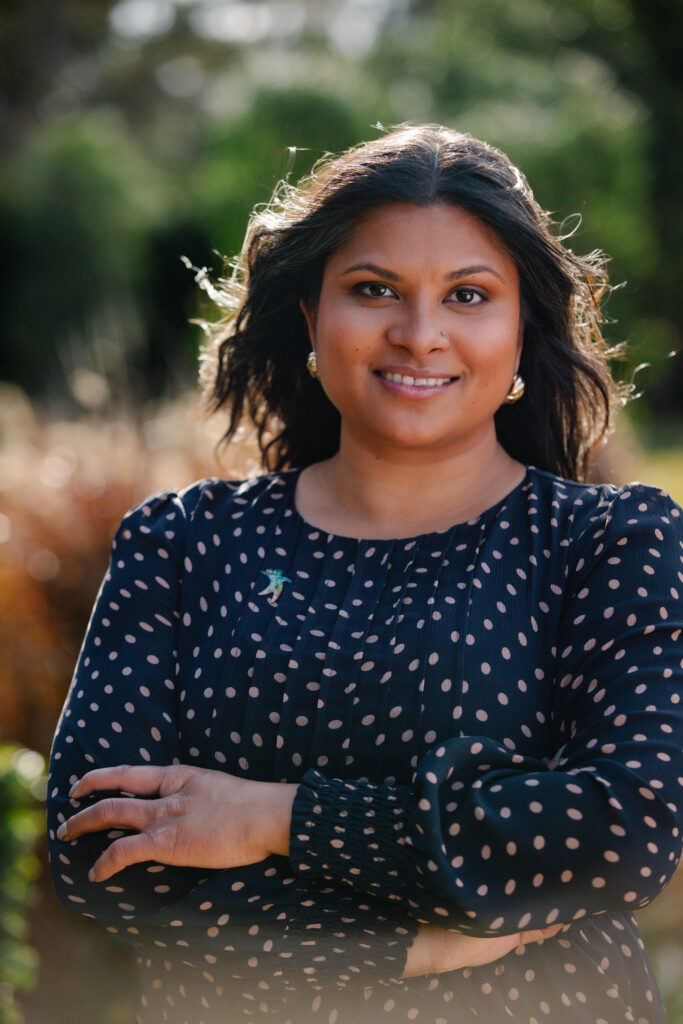Every year, International Day of People with Disability (IDPwD) serves as a powerful reminder of the progress made – and the work still to be done – in creating an inclusive world. This day is not just a celebration of the disability community but a call to action for society to dismantle the barriers that continue to exclude us, beyond December 3rd. As an IDPwD ambassador, I am honoured to contribute to this mission, drawing on my professional, educational and lived experiences to advocate for equity, visibility, and meaningful inclusion.
My journey as a disabled woman of colour has been one shaped by the “triple whammy of intersectionality”. Navigating life as a double above-knee amputee has taught me resilience, but it has also exposed the multiple layers of bias and exclusion that people like me face daily. For those of us who are both disabled and from culturally and linguistically diverse (CALD) backgrounds, the challenges are amplified. Misconceptions, cultural stigma, and systemic inequities often silence our voices and obscure our contributions. As an ambassador, I aim to change that narrative.
Representation is at the heart of advocacy. A 2023 report from Screen Australia shows a minor improvement in disability representation within Australian media – a rise from 3.6% to 6.6% – but the figure remains woefully inadequate to account for the nearly 20% of the Australian disabled population.
When people see disabled individuals thriving in spaces like runways, boardrooms, or creative industries, it challenges long-held stereotypes and redefines what is possible. Through my online platform and advocacy, I share disabled experiences of those who are breaking boundaries and reclaiming their narratives. This work is deeply personal – each story, including my own, is a testament to the strength, creativity, and diversity within our community.
Yet representation is only one piece of the puzzle. True inclusion requires addressing systemic inequities. Disabled individuals, particularly those who also belong to other marginalised groups, often face unique barriers, from language difficulties to lack of culturally responsive support systems. Our advocacy efforts must prioritise these intersecting challenges to ensure no one is left behind. This is why I am committed to amplifying the voices of those who are often marginalised even within the disability movement. Our diversity is our strength, and celebrating it enriches us all.

My role as an IDPwD ambassador is not just about raising awareness but also about fostering allyship. Allies – whether individuals, organisations, or policymakers – play a crucial role in creating lasting change.
Inclusion starts with education: learning about the lived experiences of disabled people, listening to our needs, and challenging ableism in all its forms. It extends to action: advocating for accessibility, equitable opportunities, and spaces where everyone has a sense of belonging.
The 2024 United Nations IDPwD theme is – “Amplifying the leadership of persons with disabilities for an inclusive and sustainable future.”
Why does this theme resonate strongly with me?
The unemployment rate of people with disability is 10%, double that of those without disability (4.6%). Once in employment, it is more difficult for us to remain employed due to various challenges within the workplace. Throughout my career, I have been an employee of government, non-government, private and not-for-profit organisations. Unfortunately, a common experience in all workplaces – conscious and unconscious bias. From inaccessible/exclusionary team building activities to inappropriate racial ‘jokes’.
People with disability continue to be significantly underrepresented on boards, in politics and in other leadership roles, which has tangible impacts on disabled employees. Disappointingly, only 16% of females with disabilities reported feeling represented in leadership roles, a figure which is likely much lower if intersectionality is considered.
When people with disabilities, especially those with other intersecting identities, are included in leadership roles, they bring lived experiences and unique perspectives that inform more effective, equitable decision-making. Representation at every level of an organisation is crucial for fostering inclusive policies and practices, particularly in advancing disability-confident leadership. Leaders with disabilities can challenge unconscious biases, identify systemic barriers, and champion inclusive strategies that might otherwise be overlooked. Our presence at the table also signals to employees, clients, and stakeholders that the organisation values diversity and is committed to inclusion, creating a culture where everyone feels seen and supported.
Moreover, representation normalises disability in professional spaces, breaking stereotypes and showing that people with disabilities are capable and valuable contributors at every level. This, in turn, inspires confidence in hiring, retaining, and promoting diverse talent, ultimately leading to policies and practices that are not only inclusive but also proactive in addressing the needs of all individuals within the organisation. Increasing representation of people with disability in leadership roles is also a priority area for Australia’s Disability Strategy 2021-2031.
Today, I proudly sit on boards, working towards disability-confident boardrooms to ensure amplification of underrepresented voices in decision-making processes.
Looking forward, my vision is for a world where IDPwD becomes a celebration of achievements rather than a reminder of disparities. A world where disability is seen not as a limitation but as a facet of human diversity. And a world where intersectionality is not an afterthought but the foundation of inclusion.
This IDPwD, I invite you to join me in building that future. Let’s amplify disabled voices, challenge misconceptions, and break barriers together. Because when we create spaces where everyone can thrive, we all rise.

